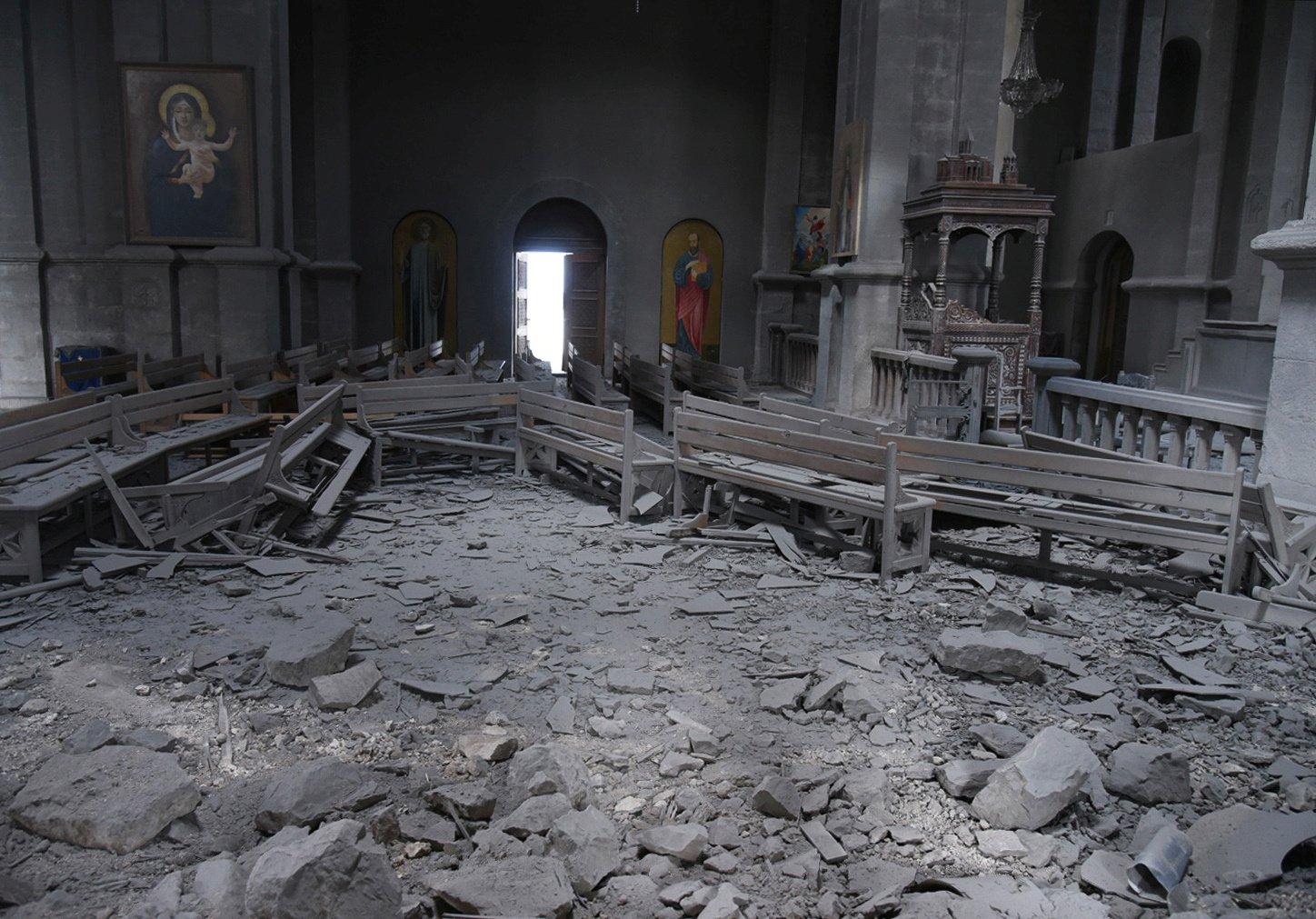A small, landlocked Armenian enclave within the borders of neighboring Azerbaijan is in search of peace and stability, both of which have proven elusive, while hundreds of thousands of people continue to feel the effects of decades of war in various ways and to various degrees, and the specter of a large-scale humanitarian crisis looms.
The territory of Artsakh/Nagorno-Karabakh in the South Caucasus has been under dispute for more than a hundred years, ever since both Armenia and Azerbaijan declared their independence from the crumbling Russian Empire. The most recent outbreak of major hostilities took place in late 2020, but the broader context of the internecine conflict can be traced to the 1980s and the upsurge of national aspirations amid the decline and eventual collapse of the Soviet Union.
As recently as September of last year, clashes erupted along the border between Azerbaijan and Armenia, with Azerbaijan conducting significant operations against positions inside Armenian sovereign territory and observers saying Azeribaijan initiated the action.
It was in this uneasy climate that the Vatican’s secretary of state, Cardinal Pietro Parolin, undertook a peace mission earlier this month to both Armenia and Azerbaijan, a mission hailed by both civil and religious leaders as an important step not only in strengthening bilateral relations but in facilitating dialogue.
Caritas Armenia has been working on behalf of those suffering as a result of the ongoing instability and violence.
“Cardinal Parolin’s visit was an important step that expressed the intention of Vatican to contribute to the peaceful resolution of the conflict,” Dr. Lusine Stepanyan of Caritas Armenia told Crux, noting that Cardinal Parolin conveyed a message of hope and support from Pope Francis during a Mass in the Armenian Catholic Church of Gyumri, with participation of the apostolic nuncio to Armenia, the Armenian Catholic leader of the US and Canada, Catholic clergy, Caritas Armenia staff, and many of the faithful.
“Now,” Stepanyan said, “Our hope that Pope Francis will hear the voices of suffering people also through the secretary of state and will pray for the dignified peace for the Armenian people in Armenia and Nagorno Karabakh is even more vivid.”
Pope Francis visited the Caucasus twice in 2016. He traveled first to Armenia, and then to Georgia and Azerbaijan a few months later. Francis initially intended to visit all three countries in one voyage, but the tensions between Armenia and Azerbaijan made that impossible.
On the ground, Caritas Armenia has been operating since 1995, and has supported vulnerable families of the Republic of Armenia—including people affected by the escalations of the Nagorno Karabakh conflict—since their arrival.
“We have worked in different directions with support of our sister organisations from Caritas Confederation,” Stepanyan said, especially in humanitarian and development work.
“Since the very first days of the war in 2020 we have provided humanitarian aid to the people displaced from Artsakh (Nagorno Karabakh) and local families of Armenia affected by the war,” she said.
A trilateral armistice agreement signed by Armenia, Russia, and Azerbaijan in November of 2020 made it possible for Caritas to provide relief support to affected families. “That included shelter and livelihood assistance, post-traumatic psycho-social support and rehabilitation to the wounded soldiers,” Stepanyan said.
“Nowadays we are mostly supporting economic integration of people of concern through business incubation and employment support.”
In December of 2022, Russian peacekeepers took control of the only road link between Armenia and Arsakh / Nagorno Karabakh, the Lachin Corridor is a stretch of road running just over three miles (5km) through mountainous terrain. In August of 2022 the mountain pass came under Azerbaijani control, and in April of 2023, Azerbaijan established a “checkpoint” with the stated purpose of staunching the flow of war materials but that effectively serves as a blockade, and is in violation of the trilateral agreement.
Caritas Armenia had provided assistance to families from Nagorno Karabakh that are stuck in Armenia due to the blockade and had begun work with a partner organization. Caritas was providing vouchers to vulnerable families for food and non-food items except tobacco and alcohol products. “Unfortunately,” Stepanyan said, “due to the blockade of Lachin corridor we had to stop the project since there was nothing to buy at supermarkets.”
Advocacy is another major facet of Caritas work in the region.
“Our efforts are aiming at raising awareness within the international [community] of the blockade and its humanitarian consequences, and advocating for fair solutions,” Stepanyan said.
“We believe that only with an adequate response from the global community can we guarantee that human rights are not compromised or influenced by any economic or political agendas and all people really have access to humanitarian aid as prescribed by the international humanitarian law.”
Stepanyan said Caritas Armenia is working to ready humanitarian resources—especially food—when the blockade is lifted and they can once again access Nagorno Karabakh.















